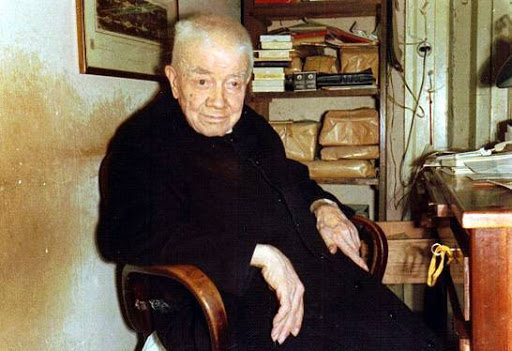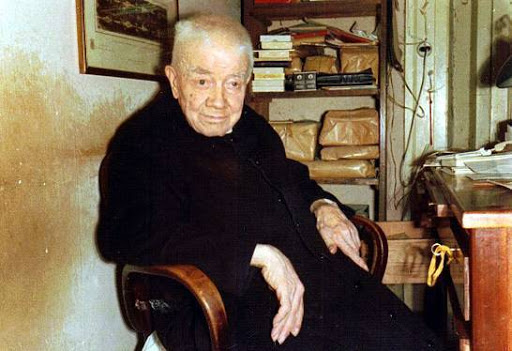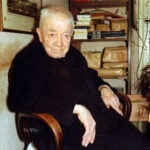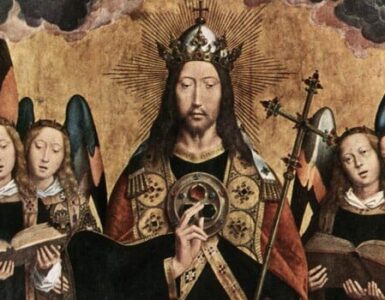They said he was possessed by a demon. That he was mentally unbalanced. That he denied hell and believed he was Jesus. That he was a heretic and was disrespectful to the Pope.
These were only some of the false accusations leveled against Servant of God Don Dolindo Ruotolo by Church authorities between 1907 and 1937. Over and over, he was called to the Vatican and forced to undergo trial after trial, where he faced ludicrous, illogical, and unreasonable testimony against him. These lies ultimately resulted in the decades-long suspension of all his priestly faculties.
Still, never once did Don Dolindo waver from his steadfast devotion to the Church. He let it be known always that no matter what the Church decided in his case, he would be completely obedient to Church authority. He was docile to the will of the Church at all costs.
The accusations about him were false, but it took thirty years to dispel them. The Vatican tribunal dropped the charges against him in 1921 and found him innocent, declaring him neither guilty nor insane, but absurdly, beyond all reason, the authorities refused to reinstate his priestly faculties. Despite his innocence, Don Dolindo was not permitted to celebrate Mass again until 1937, when at last Pope Pius XI reinstated him in full.
During those long years of waiting, Don Dolindo suffered what he described as a daily crucifixion.
“My soul is as if broken,” he writes in the book Amore, Dolindo, Dolore. “Truly, each morning I place myself on Calvary. … Every day I feel afresh the same pain, the same interior agony, and every day, in spirit, I stretch my arms out as if on the Cross.”
Yet he knew without a doubt that this tremendous suffering was not in vain.
“Jesus, who is so good, will not leave this enormous effort sterile and useless.”
The unthinkable anguish that Don Dolindo endured from being falsely accused and humiliated only drew him closer to Jesus. The ignominy of his suffering was, he believed, a sign that it was the True Cross he was carrying.
“A cross which does not humiliate us, one which we do not move dragging, that is, with repugnance, is not the True Cross carried by Simon of Cyrene,” he explains. “O Light in my sufferings! O joy in my humiliations! O serenity in my falls! In this way my repugnance is an authentic sign that I am carrying the True Cross, the Cross of Jesus who walks before me.”
Ever since childhood, Don Dolindo had longed to carry crosses and to suffer for Jesus. In 1910, he had offered himself as a victim soul. In 1920, he renewed this offering in writing:
“Lord, I offer myself to you as a victim soul, that I alone may be abandoned and in desolation, and I ask that you give all my consolations to my spiritual children.
“I want only to be a leper, forgotten by all. … I ask only that You make use of me as a victim. I ask only to be united in the anguish of Your agony.
“O my Lord, You are so good, I know, and so I wish to be crucified along with You. Oh, that in me Your Passion may be re-enacted!”
Although he started out with an iron will that was entirely directed toward suffering, Don Dolindo’s approach began to change as his crosses became harder to bear. His writings from this time reflect three stages that he went through in his spiritual understanding of surrendering to the Will of God.
In the first stage, during his youth and early priesthood, Don Dolindo only wanted suffering and nothing else.
“When I was a child, I was always praying to have sufferings and crosses,” he wrote in a letter to his dear friend, Elena Montella, in 1921. “When I was ordained a priest, I prayed for this even more fervently.”
“I would look longingly at the Cross, and complain when my suffering was removed.”
But then his crosses increased in weight, and the second stage of his spirituality of surrender began: instead of praying strictly for suffering, he started praying to do God’s Will. At that point, he was relieved—though not yet grateful—for a respite from suffering.
“When the terrible crosses began to come,” he continued in his letter to Elena, “I recognized my utter weakness and prayed only to do the Will of God.
“When trials struck me down, then a respite would follow. Although I was relieved, yet I did not thank Jesus for the respite.”
Then the crosses became nearly unbearable, and Don Dolindo reached the third stage of surrender, in which he not only accepted relief from suffering but became grateful for it and even, at times, prayed for it.
“Now that the crosses have become that much heavier,” he explained to Elena, “now I do thank Him for the reprieve, and sometimes I even ask Him for it.
“I’ve made a pact with Him: That He not heed me ever, unless it be His Will. And if it is not, that by my suffering He will be glorified.”
Where he had once set his sights only on suffering, now Don Dolindo sought only whatever God wanted to give him, whether that turned out to be suffering or relief.
“I strive to maintain the same serenity of spirit regardless,” he told Elena. “… I don’t know if it is progress or regress, but it seems to me that it is much better to convince oneself of one’s weakness and lowliness before God.”
In this complete self-abnegation, recognition of his weakness, and surrender of his own will, Don Dolindo found a peace that the world cannot give.
“I have immersed myself, so to speak, wholly in Jesus’ Passion, and so can confirm that this is the great secret to finding peace of soul.”
Special thanks to Maria Palma Smith for the use of her English translation of the book Amore, Dolindo, Dolore (Casa Mariana Editrice “Apostolato Stampa”, 2001). Publication of the English translation is forthcoming from Academy of the Immaculate Publishing.










